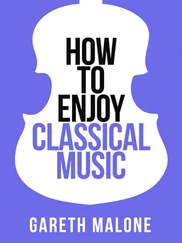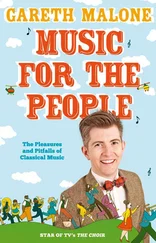STEPHEN FRY - OF CLASSICAL MUSIC
Здесь есть возможность читать онлайн «STEPHEN FRY - OF CLASSICAL MUSIC» весь текст электронной книги совершенно бесплатно (целиком полную версию без сокращений). В некоторых случаях можно слушать аудио, скачать через торрент в формате fb2 и присутствует краткое содержание. Жанр: на английском языке. Описание произведения, (предисловие) а так же отзывы посетителей доступны на портале библиотеки ЛибКат.
- Название:OF CLASSICAL MUSIC
- Автор:
- Жанр:
- Год:неизвестен
- ISBN:нет данных
- Рейтинг книги:5 / 5. Голосов: 1
-
Избранное:Добавить в избранное
- Отзывы:
-
Ваша оценка:
- 100
- 1
- 2
- 3
- 4
- 5
OF CLASSICAL MUSIC: краткое содержание, описание и аннотация
Предлагаем к чтению аннотацию, описание, краткое содержание или предисловие (зависит от того, что написал сам автор книги «OF CLASSICAL MUSIC»). Если вы не нашли необходимую информацию о книге — напишите в комментариях, мы постараемся отыскать её.
OF CLASSICAL MUSIC — читать онлайн бесплатно полную книгу (весь текст) целиком
Ниже представлен текст книги, разбитый по страницам. Система сохранения места последней прочитанной страницы, позволяет с удобством читать онлайн бесплатно книгу «OF CLASSICAL MUSIC», без необходимости каждый раз заново искать на чём Вы остановились. Поставьте закладку, и сможете в любой момент перейти на страницу, на которой закончили чтение.
Интервал:
Закладка:
THE TIME OF THE KINGFISHER
T
he time of the kingfisher or, put another way, the halcyon time.
The golden years, that 'oooh' bit in history - call it what you will, just don't call it Keith. It's the time after which things would never be the same again. I prefer to label them '1911 to 1914'. So come with me, if you would, and we will walk through the halcyon years together.
In 1911, Stravinsky was stirring it up again with his music to the ballet Petrushka. It was strong stuff, too. I know everyone goes on about the riots at the first night of The Rite of Spring, but just take a listen to Petrushka some time. It's amazing, and it must have sounded so weird in 1911. If you know it, think of the Russian Dance from Petrushka. Got it in your head? Now think of 1911. It's the year King George V was crowned. Now think back to that music - does that sound like die music? Now King George V, again. Now the music. Honesdy, does that music sound like King George V? No! And I bet it sounded even less like King George V back then, too. Am I making sense? What I mean is that they don't seem to go together, do they? And that's the point. Stravinsky was…
CLICHE ALERT! CLICHE ALERT! CLICHE ALERT! CLICHE ALERT!
…'writing out of his time'. Sorry about that, but it's true. Petrushka was arguably more out of its time than The Rite of Spring, but it was the Rite that caused a riot and, as a result, gets the billing above the tide.
1911, by the way, is the year that the Kaiser was speaking, rather ominously, about Germany's 'place in the sun' - the same year, thank goodness, that thirty-seven-year-old Winston Churchill became First Lord of the Admiralty. In China, the Manchu dynasty fell, having been in power since 1644. WOW and then some. 1644. You see?! You see?! Yes, things always change, yes, agreed. (Have you still got Petrushka in your head?) But around this time they seemed to be changing in giant leaps, sea-changing, so to speak. Aircraft were used in a war offensive for the first time in 1911, the Italy-Turkey war, in fact. Sounds sort of 'Mmm' now, a bit 'Oh, really?' now. But think back to then. Aircraft in war must have seemed like something from another world - it must have been so frightening, so different, so weird. THIS is the world Stravinsky was reflecting, not the 'little-finger-poised-with-cucumber-sandwich-and-George-V' world. That doesn't fit Stravinsky and his Petrushka at all. No. He's writing music that can see through that to beyond. He's writing music that says…well, it says Braques, the cubist painter. Its says…Paul Klee, it says Jacob Epstein - all of whom were producing great stuff in 1911: Braques and his Man with a Guitar, Klee with his Self Portrait and Epstein with his tomb of Oscar Wilde, actually. And if you think back, one final time, to the Russian Dance, from Petrushka, then it might also be saying… 'Mahler is dead!' And, indeed, both symbolically and physically, he was. OR WAS HE? Mmmm? Mmmm???
Well, yes, actually, of course he was: died 18th May 1911, if you want the exact date. So, very dead. A lot dead. Dead dead. Dead to the power of dead. He'd 'come over all dead'. (That's enough 'deads', I think. Just wanted to make my point.) So the answer is 'Yes', obviously he is. I just said he was.
But if Mahler is dead, who is it that's writing the lush, romantic music in 1911? Who is it that is not quite writing 'the music of change', a la Stravinsky? Indeed, Stravinsky, himself, called this composer 'cheap and poor'. Well, step forward, with score in hand, one Richard Strauss. The score in question was that of his opera, Der Rosenkavalier. To put it back into context, it was the music of change for Strauss - it was very much his way of going forward.
Richard Strauss had been born into a very musical family - his father being a very famous horn player, who played in orchestras conducted by Wagner. Having shown a ridiculously early and well-formed talent for composing - his Festival March is from when he was ten - he studied at university in Munich, before becoming an assistant conductor to Hans von Bulow. Looking back, he's rather like one of those people who wrap cars up in clingfilm and save them, in pristine condition, in a garage, for years. Then, they bring them out, aeons later and unwrap them. While they appear bright and shiny, they don't really appear new, if you know what I mean. They have all the trappings of new, but they're not… new. In addition, you have to take everything Stravinsky says with a pinch of salt, too. Given time, 'Rudd' Igor would often change his mind on most subjects, eventually going on to give you a quote that totally contradicted everything he'd previously said on a given subject. Nevertheless, Stravinsky's bons mots notwithstanding, whichever way you look at it, Strauss was holding on for dear life to an era and style that all around him were saying was dead.
HEAR THE WORLD UNRAVEL
O
ne year later, 1912, and Maurice Ravel would have been thirty-seven - a great age for a composer, I would imagine, if you had your health and a good twenty-five years left in you. And this seems true of Ravel, who did his first work for Diaghilev's Ballet Russe company in 1912, thus highlighting a pattern. Diaghilev's company is a rather forward-looking dance troupe, working out of Paris, and counting the great Nijinsky - the dancer, not the horse - among their number. It was the same company who had inspired Stravinsky to greatness a year earlier. This is one of the most gratifying parts of the entire 'great' artistic process - generally speaking, greatness breeds greatness. Up until his ballet music, Stravinsky had produced nothing more interesting than the Symphony in Eflat - a good piece, but not monumental. The combination of Diaghilev, Nijinsky, the Ballet Russe and, it must be said, Paris itself - the capital of the Modernist movement - and, well, it seemed to make people raise their game. Certainly it did with Ravel. Despite having some great work under his belt already - Pavane pour une Infante defunte, Jeux d'eau and Sheherazade - in 1912 he produced what a lot of people see as his greatest work, Daphnis and Chloe. Oddly enough, Diaghilev hated it. And, indeed, the first-night audience hated it. No change there, then. Imagine you were playing 'May I?'. You know, the game where you are given an instruction and you have to say 'May I' before you do it. Only, in this instance, you're playing it in 1912. You're given the instruction, 'Take two cavernous nostril breaths.' So, you clear the lungs, and breathe in, through your nose, two massive cavernous nostril breaths. What would you scent? Well, I'm getting… hints of… Lenin and Stalin in Pravda: I'm smelling Woolworths opening… I'm… I'm getting a rumour of… the first parachute jump… yes, and I'm getting… is that Picasso's The Violin) I think it is. There's also a frisson of Modigliani… maybe the Stone Head… or is it Woman with Long Neck) No, it's definitely Stone Head. Mmm, I'm also getting… what is that? A strange… afterscent… it's… oh, it's the Titanic. Sinking. My word, what a year. That really was something. All that and Delius comes up with On Hearing the First Cuckoo in Spring, an orchestral tone poem which seems to capture the essence of this period - a dusky, deliquescent time, when God was in his heaven and all was still right with the world. Of course, if you were playing 'May I?' then you would just have had to go right back to the start, because you didn't say 'May P.
Ah, to be young again. For now, though, let's see in the new year of 1913.
Can you imagine it? The countdown - 10, 9, 8, 7, 6, 5, 4, 3, 2, 1… at which point the band break into those cataclysmic bars from Stravinsky's The Rite of Spring. People look up nervously from their merry, cross-arm clinches. A couple try to form some kind of dance steps around the those chords that sound like the warning of the end of the world. Amazing, not so much off-beat chords as no-beat chords, each one like nail in the coffin of the halcyon years. Nobody was expecting that. That's not exactly the music of party hats and Snowballs, is it? But, to be fair, Stravinsky is really only reflecting what's going on. Two Balkan wars, Gandhi arrested, Sons and Lovers by DH Lawrence, Death in Venice from Thomas Mann, but, possibly most fittingly, Du Cote de chez Swann, the first part of? la Recherche du temps perdu by Proust, written from within the cosy silence of his cork-lined Paris flat.
Читать дальшеИнтервал:
Закладка:
Похожие книги на «OF CLASSICAL MUSIC»
Представляем Вашему вниманию похожие книги на «OF CLASSICAL MUSIC» списком для выбора. Мы отобрали схожую по названию и смыслу литературу в надежде предоставить читателям больше вариантов отыскать новые, интересные, ещё непрочитанные произведения.
Обсуждение, отзывы о книге «OF CLASSICAL MUSIC» и просто собственные мнения читателей. Оставьте ваши комментарии, напишите, что Вы думаете о произведении, его смысле или главных героях. Укажите что конкретно понравилось, а что нет, и почему Вы так считаете.










